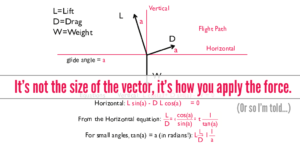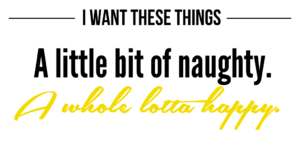Or, do you punish the lack of perfection?
I’ll admit, I do both.
It’s hard, sometimes, to recognize that things are getting better when they are frustrating AF, and maybe even something you take personally.
Luckily, I’m pretty good at rewarding the minor improvements after 22 years of being an enthusiastic amateur dog-trainer and competitor. I’ve trained myself into the mindset to look for the small wins.
But sometimes, it seems like the small wins don’t come quickly enough, or the lack of perfection feels like a personal condemnation…
I’ll give you two examples, where I did the wrong thing and the right thing in the past couple of months….
Example one: I did the wrong thing.
We were on a car ride to the mountains to camp with friends, and on car trips, we often take some time to dig deep into ideas that take a bit more fleshing out.
Relationship stuff, fantasies, etc.
And in that discussion, he hesitated about something I had just reassured him about. In fact, I had brought it up.
In the moment, I was hurt.
I was deeply hurt.
I was the one offering this thing, making it possible, loving him deeply—and he thought I didn’t mean it.
OUCH.
And I admit, I took it that way, and said so. Which also caused hurt.
We got through it. Of course. We talked it out, and came through with a deeper and better understanding of each other.
But I did the wrong thing. I did harm. And I could have set us back in our communication. I could have (didn’t, but could have) set us WAY back.
Example two: I did the right thing.
Similar situation.
Asked my partner an innocent question, with NO CLUE that it might lead to a sensitive subject. He wasn’t ready.
He hesitated.
Enough that someone who was visiting at the time noticed the stutter-start.
He hesitated with the answer, and again before providing the complete answer.
I would have been within my rights to be upset. It showed a similar lack of trust as that other instance.
But THIS TIME, I was prepared. I’d already screwed the pooch in this a few weeks before, and I knew I had. I’d taken time to think it over, and I realized I was punishing my partner for not being as perfect as I often think he is, and for the trauma responses he has no control over, based on experiences in previous relationships.
And what I wanted to do was to reward his progress, and reinforce our love and the communication in our relationship for both of us, to encourage more teeny-tiny little steps to leaving that trauma fully behind.
This time, I did better.
In the moment, I just let the conversation flow, and ignored the hesitation.
The next day, I sent a text message (because confronting him about it with a conversation might have been a little too intense for something small like this), and we had this conversation (paraphrased and anonymized):
ME
BTW, I noticed that you stammered a bit about that small [issue here], and exactly how [it came to be]. I appreciate, though, that you told me (not that there would be any question), and that we have the relationship we do, and that we are navigating this thing together.
❤️ ❤️ ❤️
HIS HOTNESS
I was going to tell you about it but I forgot it was there
🥰
ME
I know you were.
And you were a bit taken off guard.
And I love that we are working through previous trauma, and communicating. smiles
HIS HOTNESS
It could have been a powder keg in the past lol
ME
I’d like to think that we are growing beyond that.
And that was that.
Simple.
Positive.
Reaffirming.
Loving.
Rewarding.
For both of us. No additional hurt or trauma to pile on.
I did not require perfection from him or punish him for not reaching that lofty goal. AND, in myself (as importantly), I made the right shift of thinking to make that loving interaction happen, to make us even stronger.
And that makes me feel proud of myself, and to give myself the reward of feeling like a good dominant and leader in my relationship.
A few common examples:
- Punishing someone for arriving late, instead of rewarding them for arriving earlier than they might have a year ago.
- Punishing someone for telling you something a day later, instead of rewarding them for telling you (when they may have kept it hidden in a past incarnation).
- Punishing someone for telling you a lie, instead of rewarding them for correcting themselves with the truth.
- Punishing someone for calling to let you know they will get home late because they drank too much and are catching an Uber, instead of rewarding them for being responsible and doing the right thing.
- Punishing someone (or just not rewarding them) for not [fill-in the blank new habit] fast enough, instead of rewarding them for every effort and small win
And so on.
Of course, only you can determine, based on your experiences, if they are actually making the effort to get better.
And if it’s enough effort for you.
I’d also like to add something that’s worth thinking about: are the potential rewards you’re offering enticing enough for them to make that change? And do they get a taste to keep them motivated often enough?
In dog training and people training you need motivation…
For example, my dog Kaizen generally got freeze-dried liver or chicken pieces for everyday training. But we also had a few special treats, like hot dog pieces—crack—a tug toy, and a tiny little squeaky frog that he would go WILD for.
And I would mix those up, and use them when he made a conscious effort to be MUCH better during a training session, to give him some recognition and OOMPH to keep improving.
What are your OOMPH rewards for the people in your life. How do you mix it up?
(Hint: love languages are a HUGE reward booster!)
Forgive yourself for your imperfections, too…
Be mindful of your chances to reward, of course. Always look for the positives, and reward even the smallest improvements (it’s called “shaping behaviors”), but also understand that even as a trainer/dominant/leader in your relationship (or not—this is applicable to ALL relationships, even in non-power-exchange dynamics), you will not be perfect every single time, either.
Don’t punish yourself.
Just make a mental note to do better next time, then…do it. smiles
What are your thoughts?
Do you reward the small steps towards improvement?
Or do you punish imperfections, because you think, “they should know by now?”
And to turn it around, have you been punished for not achieving perfection, when you were really making progress at improving? How did that feel?









